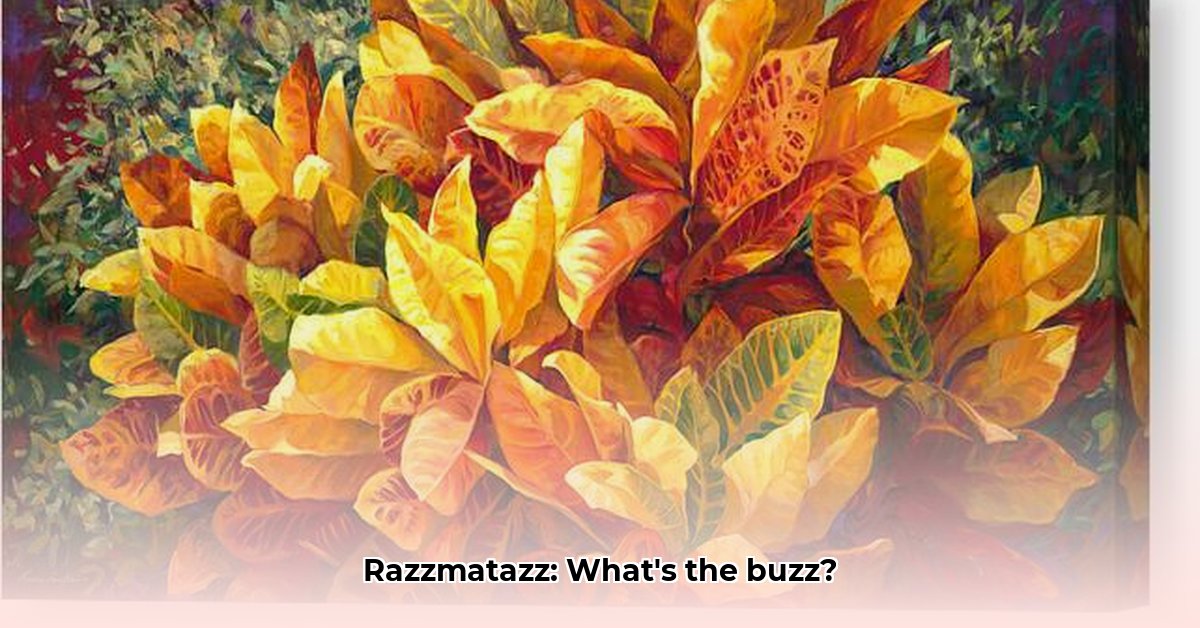
Razzmatazz: A Linguistic Journey Through Time
What's in a word? For "razzmatazz," the answer is a surprisingly rich history interwoven with the vibrant tapestry of early 20th-century American culture. More than just a fun word to say, "razzmatazz" offers a fascinating glimpse into the evolution of language, reflecting both musical trends and shifting cultural attitudes toward spectacle and showmanship. This exploration delves into its origins, its evolution, and its enduring appeal.
From "Razzle-Dazzle" to Razzmatazz: A Word's Family Tree
The prevailing theory among linguists links "razzmatazz" to the earlier phrase "razzle-dazzle." This connection highlights the linguistic process of reduplication, where a word or word element is repeated, often with slight variation. Think "super-duper" or "walkie-talkie." The inherent repetition in "razzmatazz" contributes to its lively, almost chaotic energy, mirroring the very feeling it describes. "The repeated sounds add a sense of playful exuberance," explains Dr. Anya Petrova, Professor of Linguistics at the University of California, Berkeley.
The Roaring Twenties and the Birth of a Word
The emergence of "razzmatazz" coincided with the rise of ragtime and early jazz music in the 1920s. This temporal proximity suggests a strong connection. The improvisational spirit and energetic performances of these musical genres likely played a significant role in the word's creation and subsequent popularity. "The word perfectly embodies the exuberant energy and improvisational nature of the era's music," notes Dr. Mark Johnson, Associate Professor of Music History at Yale University. The word seems to capture the atmosphere of the smoky jazz clubs, the lively energy, and the spontaneous creativity of the time.
What "Razzmatazz" Means – Then and Now
Initially, "razzmatazz" carried connotations of "wild confusion" or "boisterous hilarity." Over time, however, its meaning shifted. Today, we primarily associate it with dazzling shows and vibrant celebrations. This semantic evolution reflects a change in cultural perception; what was once seen as chaotic is now frequently viewed as thrilling and exhilarating. The word itself showcases this shift in perspective.
Spelling it Right (or Not!): The Ever-Changing Word
The occasional spelling variation, "razzamatazz," further underlines the word's relatively recent emergence and ongoing evolution. This linguistic fluidity reflects the informal, energetic nature of the word itself. "Spelling variations often serve as a testament to a word's newness and informal origins," adds Dr. Petrova.
Does "Razzmatazz" Sound like What it Means?
The word's onomatopoeic qualities—its sound mirroring its meaning—may have contributed significantly to its rapid adoption and lasting appeal. The word's inherent sounds seem to capture the essence of exuberance and excitement. "The word's sonic qualities are undeniably captivating," states Dr. Johnson. This adds another layer to its enduring charm and explains its lasting impact on the English language.
The Mystery Continues: Unraveling the Razzmatazz Puzzle
Despite its widespread use, many aspects of "razzmatazz" remain shrouded in mystery. Further research into its onomatopoeia, regional variations, and evolving usage patterns is needed to fully understand its linguistic journey. Digital text analysis promises to shed further light on its popularity trends and the ongoing evolution of its meaning. The word continues to evolve, mirroring the ever-changing nature of language itself.
Key Takeaways: Three Pivotal Points in the History of Razzmatazz
- Musical Origins: "Razzmatazz" emerged during the rise of jazz, mirroring the music's vibrant energy and showmanship.
- Semantic Shift: The word's meaning broadened from specifically describing jazz to encompassing any exuberant and extravagant display.
- Ongoing Evolution: "Razzmatazz" continues to evolve, reflecting the dynamic nature of language and its response to cultural shifts.